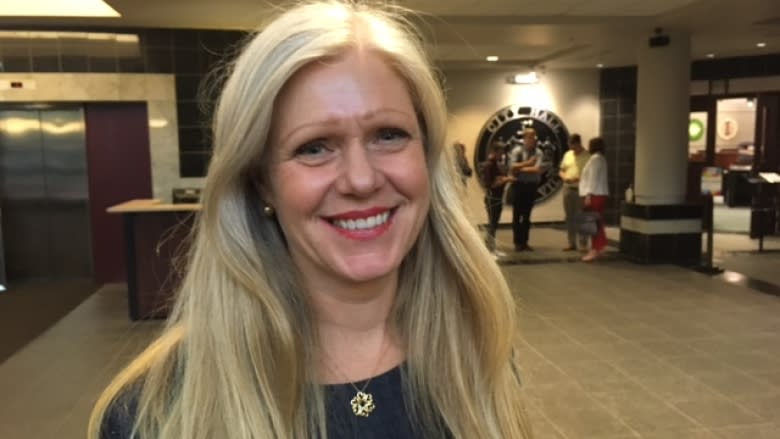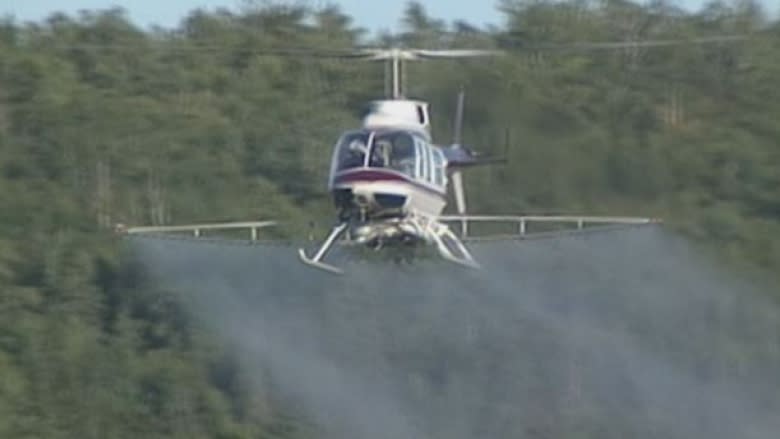Moncton mayor says new working group will study glyphosate spraying
Moncton Mayor Dawn Arnold says a delegation from the city, Riverview and Dieppe met with provincial agriculture and environment officials to put together a working group to look at glyphosate spraying near the municipalities' source of drinking water.
Moncton, Dieppe and Riverview get their drinking water from the Turtle Creek Reservoir, about 10 kilometres southwest of Moncton.
Arnold asked the province to stop spraying the controversial herbicide glyphosate near the watershed in August.
Work to eliminate risk
Arnold said last Thursday's meeting with the province involved, "fullsome discussion around glyphosate."
"We agreed moving forward that we will put together a scientific working group that will work toward eliminating risk in our watershed," said Arnold.
Glyphosate was listed as "probably carcinogenic to humans" by the International Agency for Research on Cancer, a branch of the World Health Organization, in 2015.
However, Health Canada says potential risks to human health and the environment from pesticides containing glyphosate are acceptable, if used as directed.
Earlier this year, the province said it has seen no proof the herbicide has made its way into Moncton's drinking water.
Residents concerned
Arnold said she has received a number of questions from residents for an update surrounding aerial spraying near the city's drinking water source. No decisions have been made, but the working group will have time to meet over the winter before spraying is scheduled to resume.
"If fact, there won't be any spraying permits even go out until June of 2018," she said.
Moncton will have two staff members in the group, according to Arnold. They are Elaine Aucoin, an environmental engineer, and Heather Fraser, a forestry management co-ordinator.
The province has not yet responded to a CBC request for an interview.
Arnold would not confirm what action she wants taken but stressed her concern.
"This is our drinking water we have to do whatever we can to reduce risk in our watershed."



